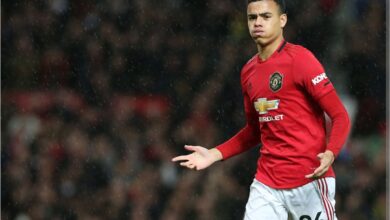“Leaving us now is like leaving the club in it hard time,I wish you the very best in your career ahead”, Bruno Fernandez Broke down in tears in an emotional farewell message as £50m Man United star set to depart Old Trafford today – farewell champion

Ralf Rangnick’s period as interim manager at Manchester United, following Ole Gunnar Solskjaer’s exit, was marked by high hopes that ultimately led to shared disillusionment. Initially hired with plans to move into a consultancy role post-season, Rangnick’s time with the club epitomized the idea of having the right person in the wrong position. His tenure became a story of discord and unmet expectations for both parties.
Throughout the 2021/22 season, it became apparent that Rangnick’s tactical approach didn’t fit smoothly with the team’s dynamics. Although he had the strategic knowledge and vision to transform Manchester United’s play style, his methods didn’t align well with the players. The planned transition into a consultancy role with new permanent manager Erik ten Hag didn’t happen, as Rangnick and the club parted ways by mutual agreement.
Rangnick’s subsequent role managing the Austrian national team, however, told a different story. In Austria, he successfully implemented his strategies, despite the team being less individually talented than Manchester United. The Austrian team has shown unity and discipline, reflecting Rangnick’s football philosophy. This success has sparked discussions on whether Manchester United’s difficulties were more about player compatibility than Rangnick’s coaching abilities.
Euro 2024 has further highlighted Rangnick’s skills, with Austria’s performances being praised for their organization and tactical discipline—traits lacking during Rangnick’s time at Manchester United. Football commentator Rio Ferdinand contrasted Austria’s cohesive play with Manchester United’s disjointed performances under various managers, including Erik ten Hag.
Ferdinand’s comments struck a chord within the football community, emphasizing the difference between well-coached teams and those struggling with cohesion and strategy. Manchester United’s issues under ten Hag, exacerbated by ongoing injuries and inconsistent play, cast doubt on the team’s ability to maintain a coherent game plan.
Despite flashes of brilliance, such as their FA Cup Final win over City, Manchester United often failed to show the collective understanding and tactical discipline seen in successful teams. Critics pointed to both individual flaws and systemic issues within the squad that blocked sustained success.
In retrospect, Rangnick’s time at Manchester United highlights the complexities of football management. His departure left lingering questions about whether a different set of players could have realized his strategic vision on the field. Meanwhile, his success with Austria reinforces his credentials as a coach capable of building a cohesive team from limited resources.
Ultimately, the debate about Rangnick’s tenure at Manchester United goes beyond his suitability for the role. It touches on the broader issues of player-manager relationships, team unity, and the delicate balance needed for success at the highest levels of football. As Rangnick thrives with Austria, his journey serves as a reminder of the multifaceted nature of football management and the ongoing quest for the right combination of talent, strategy, and leadership.




